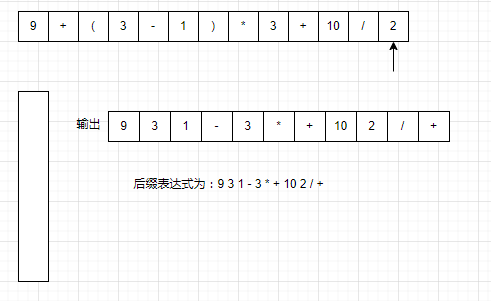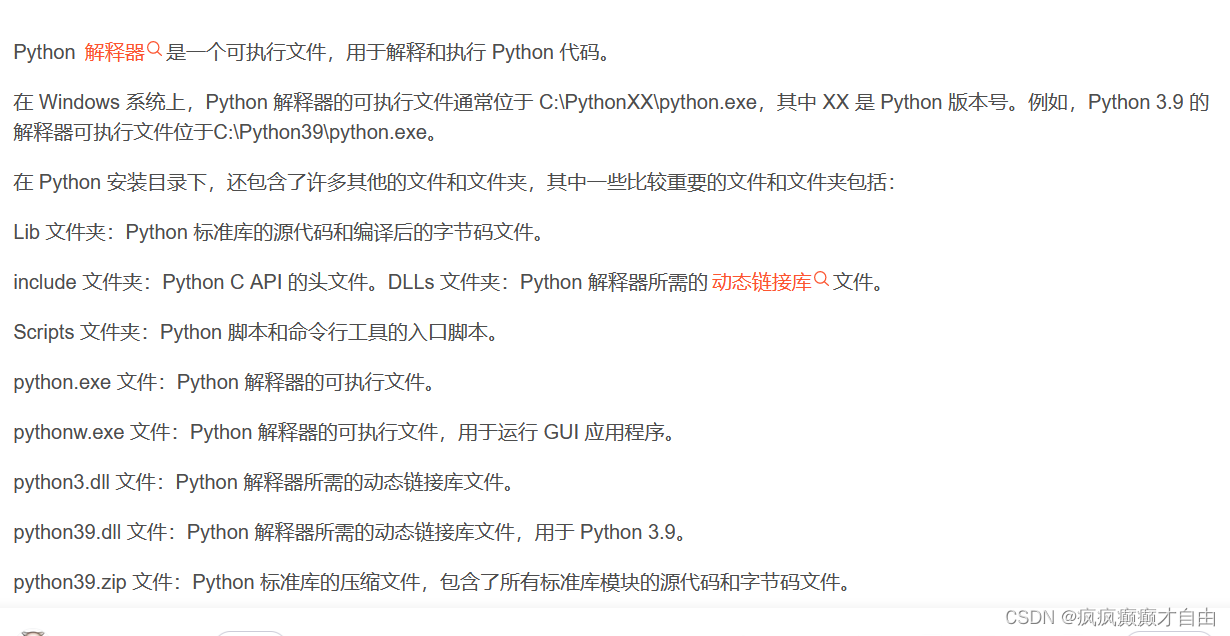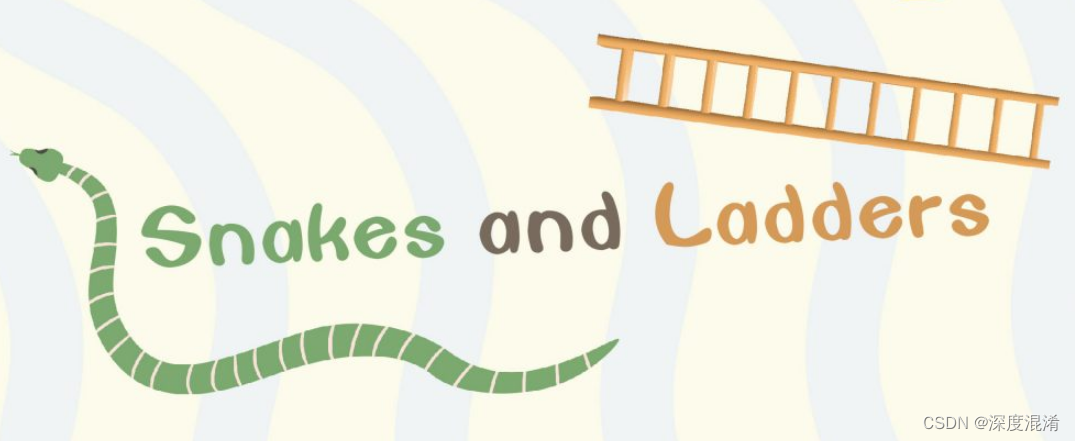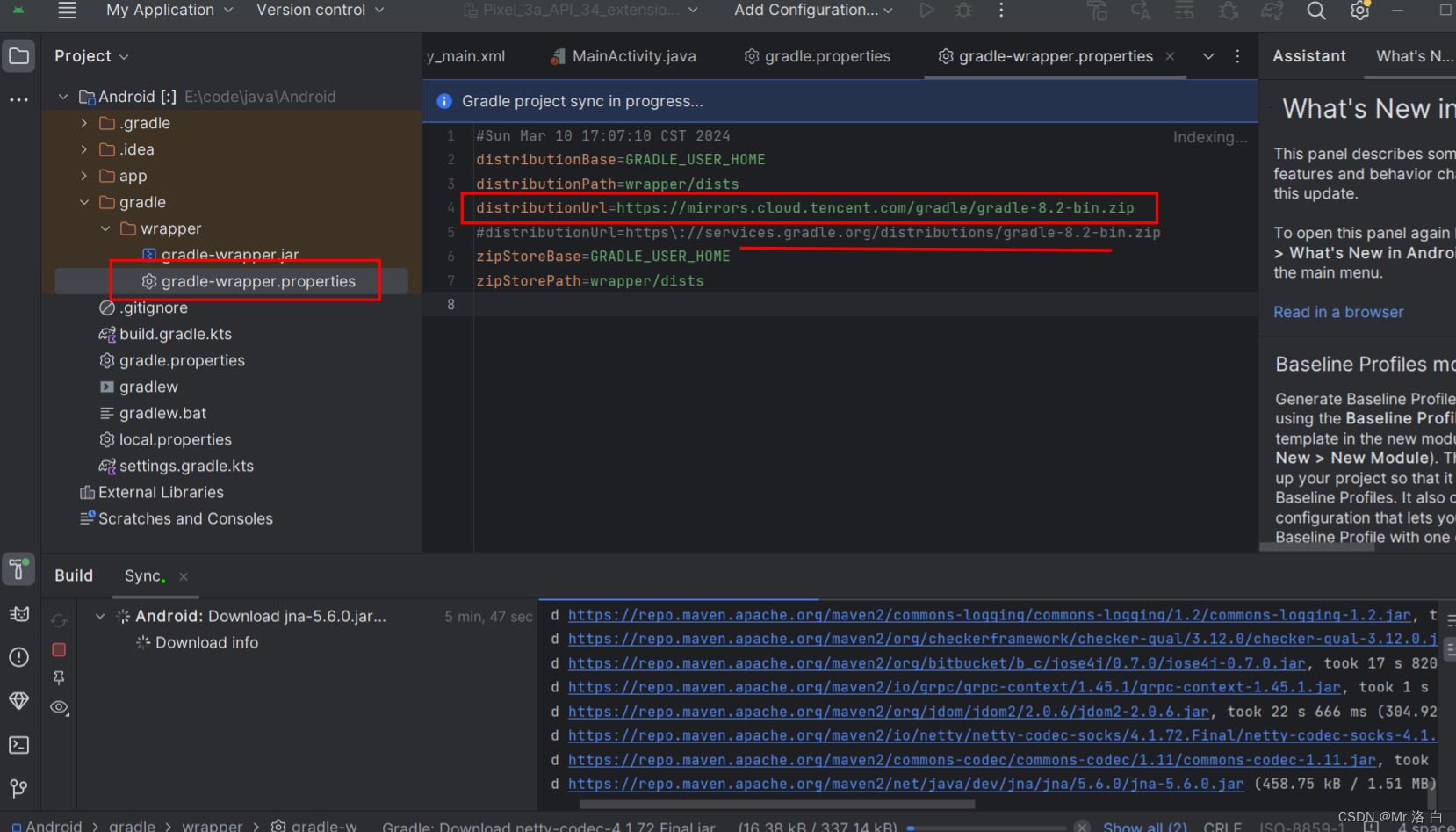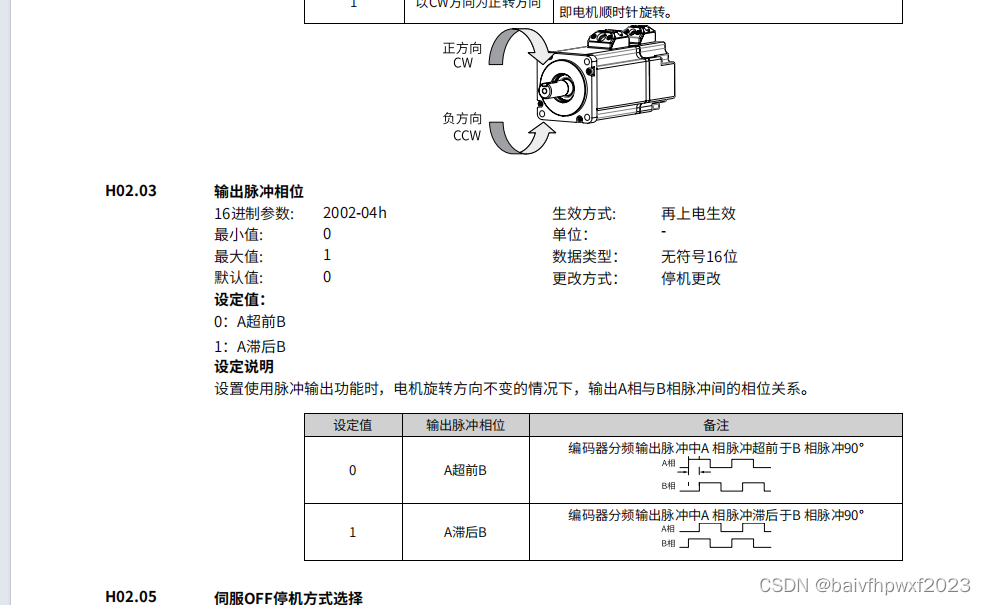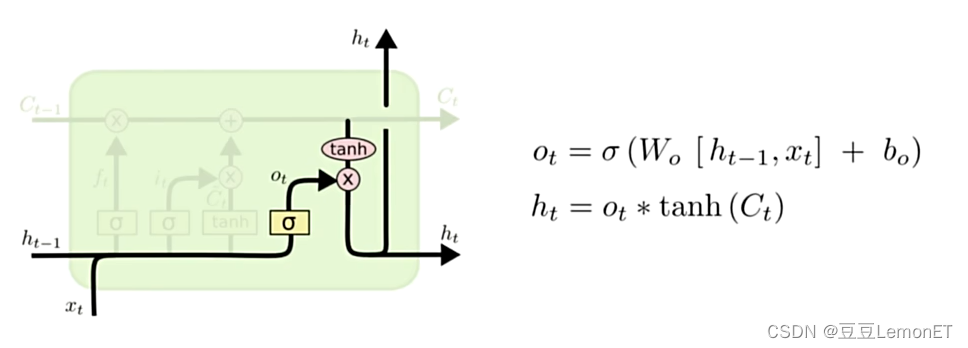“鲍威尔还表示,美联储将在某个时候放慢(利率)加息步伐”
这是参考三阶导数(贷款义务=基础,利率=一阶导数,利率变化=二阶导数,利率变化速度=三阶导数)。
是否还有其他有趣的例子,说明人们在日常生活中可能会遇到的高阶导数。
另一个生动的例子就是坐汽车,当人们坐汽车从A地到B地,那么位移就发生了变化,进一步地,人们坐在汽车上的感受就是,汽车启动、加速、平稳滑行、减速、停止等,这个过程中其实有如下一些变量
速度、加速度、加加速度(急动度)。。。
速度是位移的导数;加速度是速度的导数,是位移的二阶导数;急动度是加速度的导数,是速度的二阶导数,是位移的三阶导数,以此类推的话,一直有N阶导数。。。
//三阶导数的应用远不止如此,甚至到处都是。。。
“1972 年秋天,尼克松总统宣布通货膨胀率正在下降。这是现任总统第一次使用三次导数来推动他的连任。”
-- http://www.ams.org/notices/199610/page2.pdf
1972 年秋天,尼克松总统宣布通货膨胀率正在下降。 这是现任总统第一次使用三阶导数来推动他的连任。 大约五年前,我当地的报纸刊登了一篇关于心脏病死亡率趋势研究的文章。 将人口分为四种基因型,并将过去几十年中每种基因型的比率绘制在图表上,类似于此处所示的图表。 研究人员观察到,上方曲线的死亡率下降幅度更大,并假设医学研究歧视性地偏向它们所代表的人群。 然而,通过将数据拟合到一阶微分方程,我们发现这些图都是冷却定律类型微分方程的解,具有相同(或多或少)的系数。 因此,每个基因型的动态都是相同的,唯一的区别在于初始条件。 此外,每种基因型的稳态速率将是相同的。 因此,根本没有迹象表明存在歧视或遗传差异。 尼克松总统是在告诉我们经济正在好转吗? 他的听众是否明白事实上通货膨胀率仍在上升,因此经济仍在恶化? 有多少上述医学研究的读者在图表中发现了一致而非差异化动态的可能性? 这种滥用数学和科学的含义是什么?它是否会导致本期两篇文章中描述的“文化研究”? 当然,数学提供了创建和处理现代技术环境的工具。 我们确保公众理解这一点并指导学生使用这些工具,这是件好事。 数学还提供了创造、发展和测试新思想的技术,并设定了证明和客观性的标准,这在其他科学中很少能达到,在“现实生活”中则更难实现,但它提供了一个可以争取和反对的模型。 被测量。 但最重要的是,数学是一种结构,为观察者提供了一个框架,在此基础上进行健康、明智和明智的判断。 数据和信息从四面八方涌向我们,我们将利用它们作为明智决策的基础。 我们经常被告知这些决定应该是什么; 我们可以可靠地评估该建议吗? 如果我们不知道工具之间的关系,我们能知道选择什么工具吗? 我们对遗传学问题使用 t 检验是因为我们在其他地方看到它在遗传学中使用,还是因为我们在其他地方看到它在类似结构的问题上使用? 上下文无关的抽象数学的本质在于,它使我们能够灵活地在各种上下文中使用这些工具。 能够批判性地分析一个声称符合逻辑的论点,不受所涉及术语的负载含义的影响,这是知情民众的基本能力。 在缺乏上下文的情况下理解数学思想和过程可以将上下文从“现实生活”问题中移除,理解问题的结构,并选择正确的工具来使用。 在法学院,学生们研究百年前的案例,其争论与今天完全无关。 这样做是为了让学生了解法律的结构。 难道数学不应该这样呈现,至少在关键时刻,以便学生能够看到科学的结构吗? 也许有一天,当一位现任总统和医学研究人员进入数学大厦时,他们会知道自己身处哪个房间
原文参考:
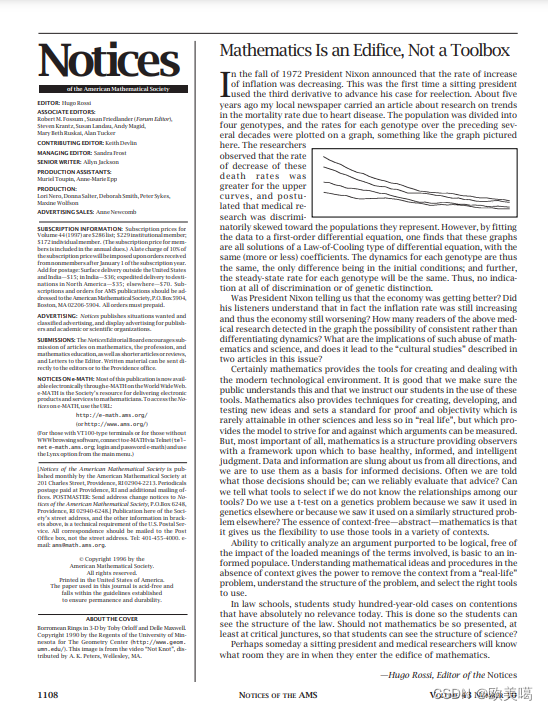
I n the fall of 1972 President Nixon announced that the rate of increase of inflation was decreasing. This was the first time a sitting president used the third derivative to advance his case for reelection. About five years ago my local newspaper carried an article about research on trends in the mortality rate due to heart disease. The population was divided into four genotypes, and the rates for each genotype over the preceding several decades were plotted on a graph, something like the graph pictured here. The researchers observed that the rate of decrease of these death rates was greater for the upper curves, and postulated that medical research was discriminatorily skewed toward the populations they represent. However, by fitting the data to a first-order differential equation, one finds that these graphs are all solutions of a Law-of-Cooling type of differential equation, with the same (more or less) coefficients. The dynamics for each genotype are thus the same, the only difference being in the initial conditions; and further, the steady-state rate for each genotype will be the same. Thus, no indication at all of discrimination or of genetic distinction. Was President Nixon telling us that the economy was getting better? Did his listeners understand that in fact the inflation rate was still increasing and thus the economy still worsening? How many readers of the above medical research detected in the graph the possibility of consistent rather than differentiating dynamics? What are the implications of such abuse of mathematics and science, and does it lead to the “cultural studies” described in two articles in this issue? Certainly mathematics provides the tools for creating and dealing with the modern technological environment. It is good that we make sure the public understands this and that we instruct our students in the use of these tools. Mathematics also provides techniques for creating, developing, and testing new ideas and sets a standard for proof and objectivity which is rarely attainable in other sciences and less so in “real life”, but which provides the model to strive for and against which arguments can be measured. But, most important of all, mathematics is a structure providing observers with a framework upon which to base healthy, informed, and intelligent judgment. Data and information are slung about us from all directions, and we are to use them as a basis for informed decisions. Often we are told what those decisions should be; can we reliably evaluate that advice? Can we tell what tools to select if we do not know the relationships among our tools? Do we use a t-test on a genetics problem because we saw it used in genetics elsewhere or because we saw it used on a similarly structured problem elsewhere? The essence of context-free—abstract—mathematics is that it gives us the flexibility to use those tools in a variety of contexts. Ability to critically analyze an argument purported to be logical, free of the impact of the loaded meanings of the terms involved, is basic to an informed populace. Understanding mathematical ideas and procedures in the absence of context gives the power to remove the context from a “real-life” problem, understand the structure of the problem, and select the right tools to use. In law schools, students study hundred-year-old cases on contentions that have absolutely no relevance today. This is done so the students can see the structure of the law. Should not mathematics be so presented, at least at critical junctures, so that students can see the structure of science? Perhaps someday a sitting president and medical researchers will know what room they are in when they enter the edifice of mathematics
